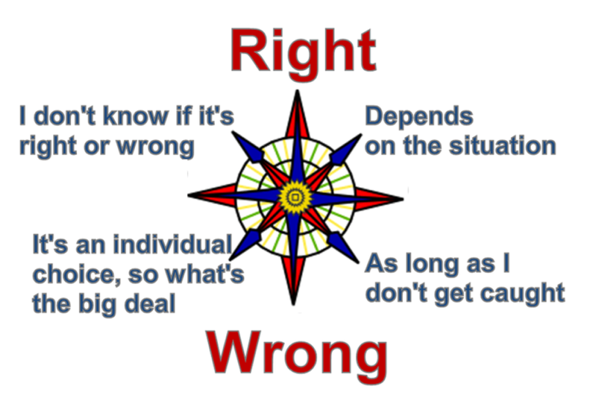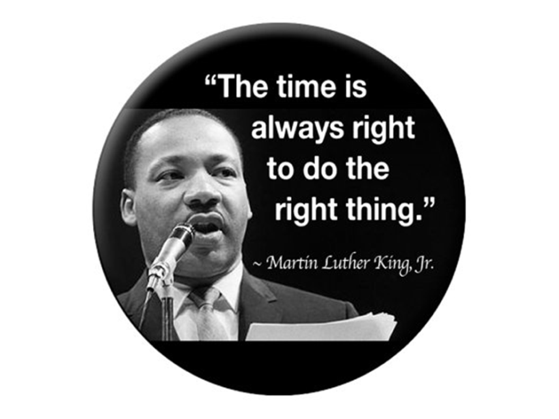We all have a moral compass that guides our daily life. It’s hardwired into us and defines who we are and what we stand for. Our values are how we form connections with others, and help us bond with friends, family, colleagues and our communities.
In a society, morality is everyone’s business — that includes brands. Yes, brands should be held to the same standards as people. But news stories about unethical or illegal activities have unfortunately become a regular feature. Here are just a few from the last month alone:
- “EU to hit Amazon with bill for Luxembourg back taxes”, Financial Times, October 3rd, 2017.
- “Tesco executives ‘cooked books in £250m scandal’” Daily Mail, September 30th, 2017.
- “Europe gives Facebook and Twitter final warning on hate speech”, CNN tech, September 28th, 2017.
- “Wells Fargo’s fake account scandal leads to credit downgrade”, CNBC, September 20th, 2017.
- “Deal that undid Bell Pottinger: inside story of the South Africa scandal”, The Guardian, September 5th, 2017.
You’d be forgiven for thinking that for some brands, their compass has been well and truly broken, that morality doesn’t matter, that in the pursuit of maximising shareholder return anything goes! That brands have lost their moral compass as they frantically chase their revenue targets. That ethics and business are indeed an oxymoron!
 What are ethics, and how are these different from morals? The words are often used interchangeably, but they have subtle but different meanings! The word ethics is derived from the Greek word “Ethos” which means character. The word moral is derived from the Latin word “Mos or Moralis” which means custom or way.
What are ethics, and how are these different from morals? The words are often used interchangeably, but they have subtle but different meanings! The word ethics is derived from the Greek word “Ethos” which means character. The word moral is derived from the Latin word “Mos or Moralis” which means custom or way.
Morals are the social, cultural and religious beliefs or values of an individual or group as to what is right or wrong, such as ‘do not cheat’, ‘be loyal’ or ‘always tell the truth’. These principles are what’s commonly referred to as our ‘moral compass’ and our own personal set of beliefs on what is right or wrong and as such are policed by individuals themselves. They are often influenced by our society, culture or religion, and consequently vary across cultures and history.
Meanwhile, ethics are the guiding rules of conduct which help an individual or group decide what is good or bad in a particular situation, such as ‘honesty’, ‘loyalty’ or ‘truthfulness’. They are chosen by an individual themself on how they wish to govern their life, but defined by an external group such as professional bodies, institutions or employers and tend to be consistent across cultures or societies or businesses, but not across history. However, they do tend to provide a framework for acceptable behaviour.
Simply put, you’d describe behaviour as ethical and a person as moral. And then you have what’s legal and what’s not! Just because something is moral doesn’t mean it’s ethical, and vice versa, and if something is unethical it doesn’t mean that it’s illegal. Breaking the law can be neither immoral nor unethical — take speeding — but can be both if murder!
The consequences for each can be very different. An unethical act can lead to professional ruin, but leave your personal life untouched. While an immoral act can lead to worse consequences than an illegal one.
In general, immoral acts have personal consequences, while unethical ones have professional consequences. But, arguably in the case of brands, immoral, unethical or illegal acts have financial consequences. Understanding what makes something immoral, but not unethical, or makes something illegal, but not necessarily immoral, is different for different people, organisations or cultures. Knowing the difference is the key. Brands, like people, have responsibilities. Just because something is technically legal does not make it ethical or even morally right.
Doing the right thing by your brand should be an uppermost priority in your decision making at all times. Loyalty to your brand purpose should be your operational mantra. Some may posit that brands have a moral duty to further society’s values, to be our moral compass. Many brands seem to think so, given the surge in advertising embracing social issues.
Great brands understand there can be no compromise or easy shortcuts. A brand lives or dies by its reputation. We trust people we connect to and that we think we understand. Once you’ve lost your customer’s trust, getting it back is near-impossible. Your mistake or error of judgment will haunt you forever, especially when a quick search on your name brings it up on screens across the world!
Brand-centric businesses understand this. Their companies have established corporate values and moral standards that are part of the fabric of their organisations. These guide both its people, its relationships with its agencies and third parties, and its actions. They lead by example. All are accountable with no exceptions. Adherence to corporate ethics is rewarded, and the consequences are clear.
The 12 principles that form the basis of business ethics are: honesty, integrity, promise-keeping, loyalty, fairness, caring and compassion, respect, law abiding, excellence, leadership, morale and accountability.
In the real world, it’s not so straightforward. It’s not always clear what’s right or wrong. It’s often subjective. Good people can take bad actions. Most decisions are made blind to the ethics of the situation. We’re so focused on the business task and meeting our business goals that we don’t see the ethical big picture, and our ability to behave ethically is impaired. Scientists call this ‘bounded ethicality’. But, why are other people complicit? Humans like to help people, especially those they identify with. When we’re helping people we like, people we empathise with, we just don’t see what we’re doing as unethical. We also, for the most part, like to please authority figures. We focus on this rather than on the ethics of the issue facing us.
Research has demonstrated that we are often blind to our own unethical behaviour and to that of others, especially when it’s not in our perceived best interest to see it. Scientists call this ‘motivated blindness’. Most of us believe that when push comes to shove, we will act ethically because we’re good people. But this leads to complacency and over-confidence, so we make decisions containing ethical dimensions without thinking through the ethics or reflecting deeply on the consequences!
A compass can go wrong. It can ‘lose the north’. This generally happens after prolonged exposure to a weak or moderate magnetic field that demagnetises the compass so that it needs recalibrating. Brands are no different; they need regular recalibrating to ensure that the path they tread is indeed ‘true’ north and that they haven’t accidently stumbled along a different route. Ask yourself; are you clear what your brands moral compass is? Doing the right thing doesn’t automatically bring success, but doing the wrong thing will almost certainly lead to failure!
BOILED DOWN
- Morality is everyone’s business, including brands. But, news stories about unethical or illegal activities are a regular feature.
- Morals are the social, cultural and religious beliefs or values of an individual or group as to what is right or wrong such as ‘do not cheat’, ‘be loyal’ or ‘always tell the truth’. Our moral compass.
- Ethics are the guiding rules of conduct which help an individual or group decide what is good or bad in a particular situation such as ‘honesty’, ‘loyalty’ or ‘truthfulness’.
- Great brands understand there can be no compromise or easy shortcuts. A brand lives or dies by its reputation. In the real world, it’s not always clear what’s right or wrong.



